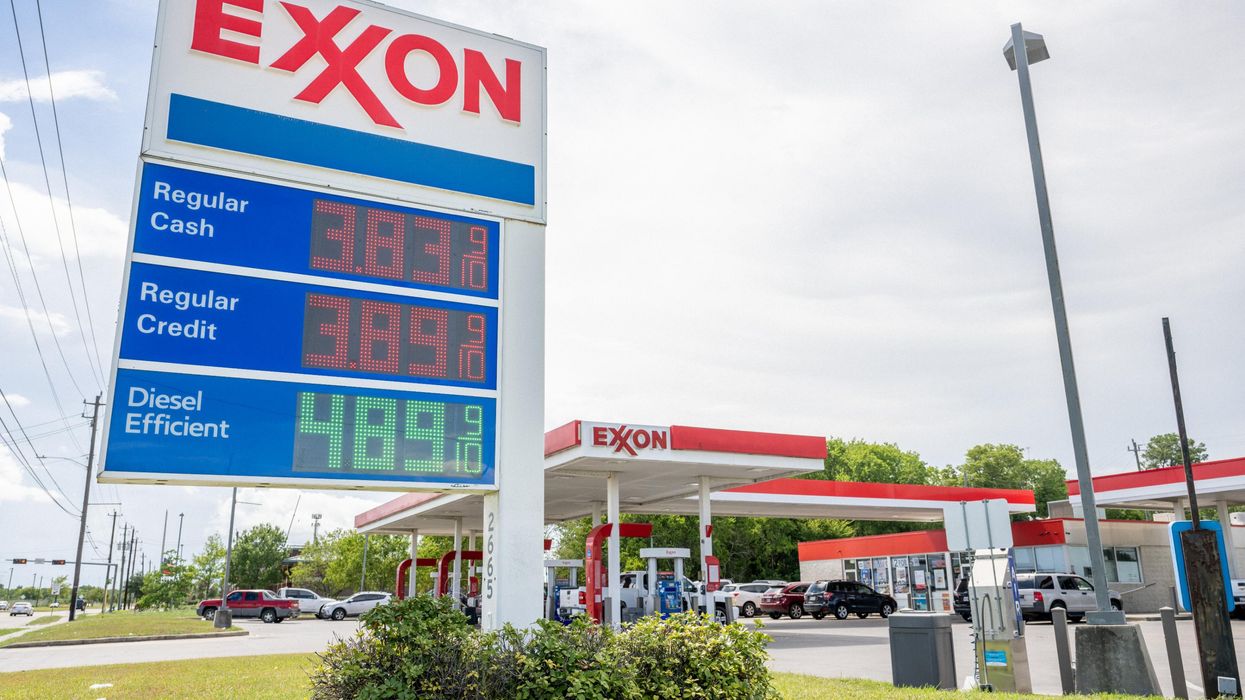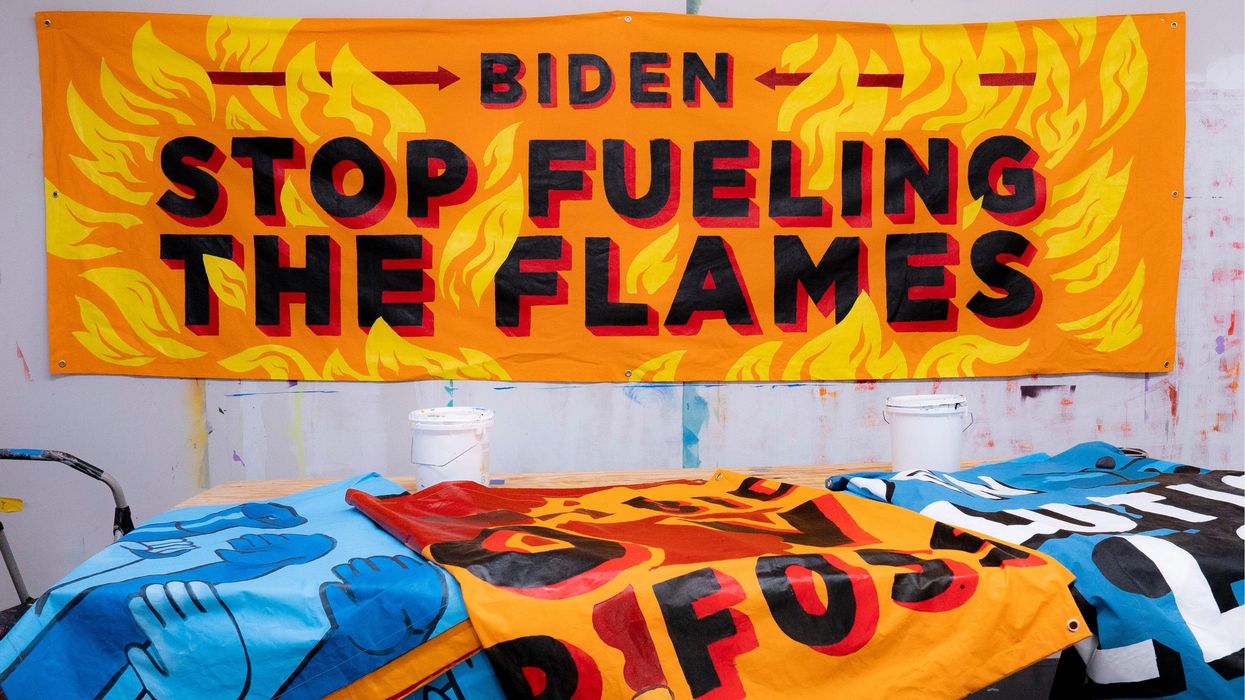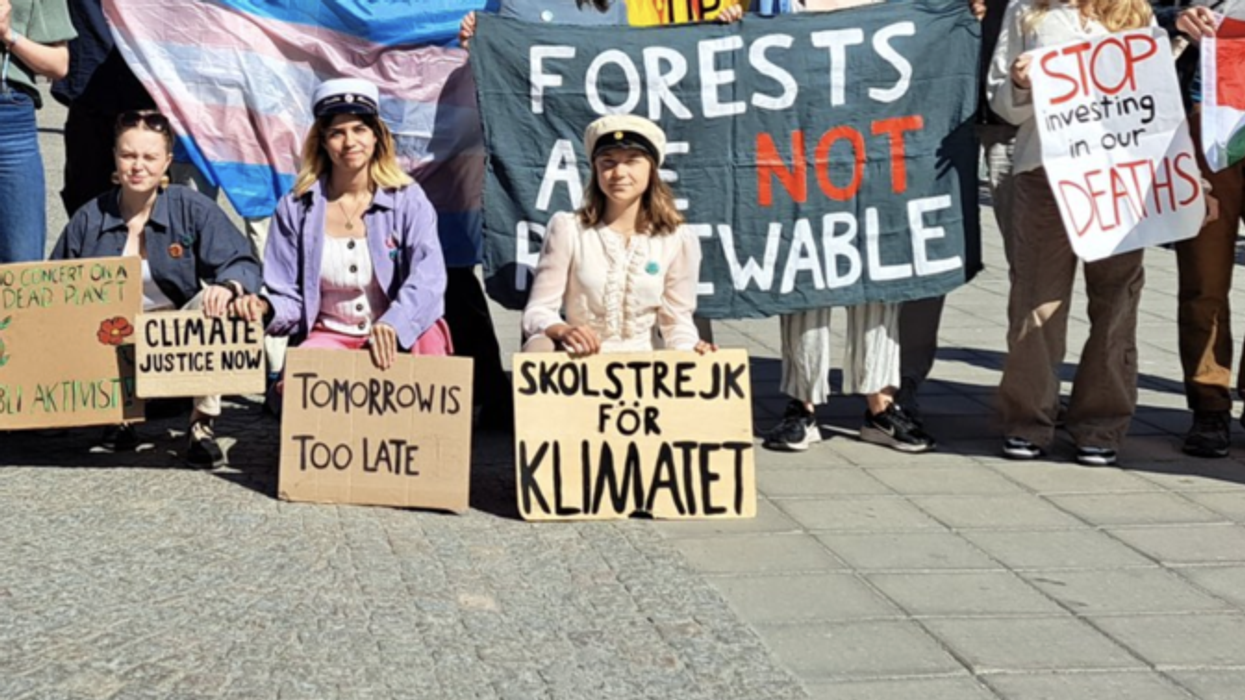'Jaw-Dropping' Analysis Shows Fossil Fuel Companies to Burn Through 62% of Carbon Budget
One researcher called the findings proof that a decarbonization pact signed by the companies "is little more than a forgery."
In another high-profile case of "greenwashing," the oil and gas companies that signed a decarbonization pact at last year's 28th United Nations Climate Change Conference have plans that would burn through around 62% of the carbon dioxide that can still be emitted without pushing global temperatures past 1.5°C above preindustrial levels.
The figures come from a Global Witness analysis published Friday, which found that the more than 50 companies that signed the pact would release over 150 billion metric tons of climate pollution into the atmosphere by 2050.
"This analysis, while jaw-dropping, only reinforces what we've long known—that fossil fuel companies will stop at nothing to extract every last drop of profit from the world's remaining fossil reserves, no matter the cost," Friends of the Earth climate coordinator Jamie Peters said in a statement.
The Oil and Gas Decarbonization Charter was launched at COP28 on December 2 by Saudi Arabia and conference president Sultan Ahmed Al Jaber, who also heads the United Arab Emirates' state oil company. In the announcement, Al Jaber called it a "great first step" and said that companies representing more than 40% of global oil production had agreed to reach net-zero by or before 2050, end methane emissions, and stop routine flaring by 2030.
However, the pact has a major loophole, as Global Witness points out: It only covers emissions released by the companies directly, not by the use of their products once they are sold. These "scope 3" emissions represent as much as 90% of the oil and gas industry's total carbon footprint.
"After looking at the detail of this pact, signed to great backslapping by bosses of some of the world's largest polluters, I have only two questions: Who do these people think they are, and how stupid do they think we are?" asked Global Witness senior fossil fuels investigator Patrick Galey in a statement.
"If a child promises to do less than 10% of their homework, they don't get a gold star. So why are oil and gas bosses congratulating themselves for signing up to rules they wrote themselves and which only address 10% of their companies' contribution to the climate crisis?" Galey asked.
"The only way to slash emissions from usage of oil and gas is to cut demand."
Global Witness used data from Rystad Energy to look at the production plans of the pact's signatories—which include major state and private companies such as Saudi Aramco, Al Jaber's Abu Dhabi National Oil Company (ADNOC), ExxonMobil, and Shell—and then calculated the total emissions of those plans through 2050.
It found that the companies would produce 265 billion barrels of oil and 26.7 billion cubic meters of gas by 2050, and that this would result in 156 billion metric tons of carbon dioxide equivalent emissions, or approximately 62% of the remaining carbon budget.
"This pact is little more than a forgery, publicly committing each company to address its outsize contribution to global heating, while privately allowing them to produce and sell billions of barrels of oil and gas for decades more," Galey said.
Of the companies who signed the pact, those with the largest carbon footprints through 2050 were:
- ADNOC and Saudi Aramco, with plans to emit more than a quarter of the remaining climate budget; and
- ExxonMobil, Equinor, TotalEnergies, Eni, and Shell, with plans to emit as much as the European Union does in 15 years.
"You'd think the hottest year in the last 125,000 would be enough to end greenwashing once and for all—but since it wasn't, let's state it plainly. No means no—there's not a way to square 'decarbonization' with fossil fuel expansion," 350.org and Third Act co-founder Bill McKibben said in a statement. "They mean the exact opposite."
The fact that the pact was announced at COP28, along with the high future footprint of ADNOC, calls into question the effectiveness of U.N. climate talks, especially when hosted by major fossil fuel-producing nations like the UAE. This year's COP29 is scheduled to take place in oil and gas-rich Azerbaijan, and will be presided over by a former oil executive.
"COP28 has shown that the profits of fossil fuel companies receive more care than the most affected regions of the world," Luisa Neubauer, climate activist and co-organizer of the Fridays for Future climate strike movement, said in a statement. "Parts of the COP agreement sound like a Christmas present for the fossil fuel lobby. Compared to what is needed in the hottest year in human history, the COP agreement is not even close to enough. The future will lie primarily in the hands of those who resist new coal, oil, and gas projects locally and globally."
Campaigners said that governments must act to phase out fossil fuels.
"This powerful analysis by Global Witness highlights that the operations of the fossil fuel industry make up a tiny proportion of the total carbon emissions from the sector," Cara Jenkinson, the cities manager at climate charity Ashden, said in a statement. "The only way to slash emissions from usage of oil and gas is to cut demand—governments across the world must speed up their electrification plans, with poorer nations being supported to bypass fossil fuel vehicles and ramp up clean renewable energy production."
Galey concluded: "We need a rapid and equitable phaseout of fossil fuels, and fossil fuel bosses must be locked out of climate talks. Everything else is marketing and spin, pure and simple."


